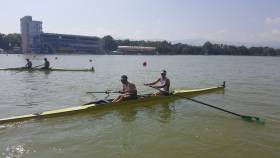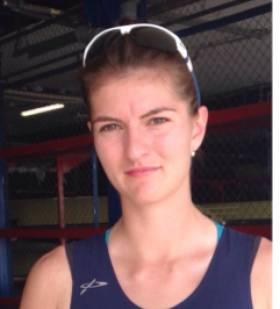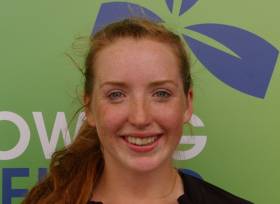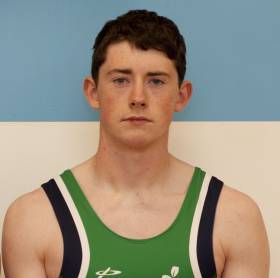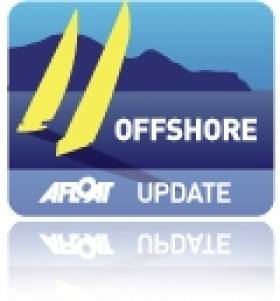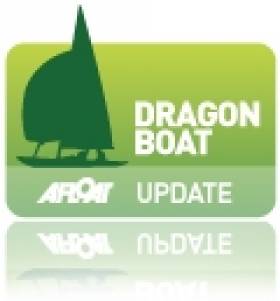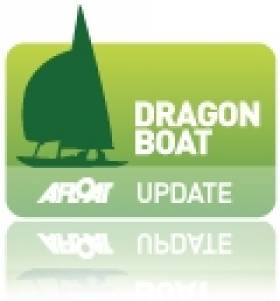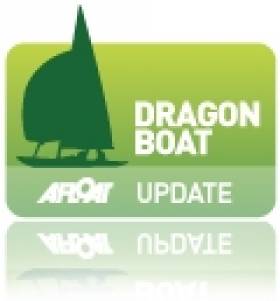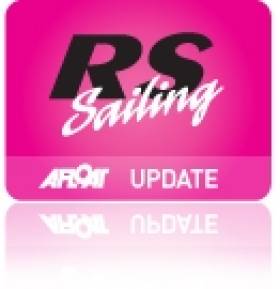Displaying items by tag: Byrne
#Rowing: Philip Doyle and Ronan Byrne gave Ireland a top-class start to the European Rowing Championships in Lucerne this morning. They won their heat of the double sculls with a powerful display, seeing off a challenge by Romania, who gave way only at the very finish, to win by over a length. The rest of the field let these two crews go, as they had wrapped up the two qualification spots for the semi-finals.
European Championships, Lucerne, Day One (Irish interest)
Men
Double – Heat One (First Two to A/B Semi-Finals; rest to Repechages): 1 Ireland (P Doyle, R Byrne) 6:26.53, 2 Romania 6:29.62.
Good Start but Doyle and Byrne Miss Out on A Final at World Championships
#Rowing: Ireland’s Philip Doyle and Ronan Byrne took fifth in their semi-final at the World Rowing Championships in Plovdiv, Bulgaria this morning. They will compete in the B Final for places six to 12. The top three took A Final places and Ireland actually led through the first 500 metres. Britain’s Angus Groom and Jack Beaumont took over the lead and built it. They would go on to win. The Irish crew were still their nearest challengers at halfway, but from there New Zealand took over in second and held it. Ireland stayed well in it, but were passed by Romania and Poland. The Romanians took third.
In the first race of the day, the Britain women’s eight squeaked through to the A Final by taking the fourth of four qualification places in their repechage – by .16 of a second from New Zealand. Rebecca Shorten from Belfast is the stroke woman for the crew.
World Rowing Championships, Plovdiv, Bulgaria, Day Six (Irish interest)
Men
Double – Semi-Final One (First Three to A Final; rest to B Final): Britain 6:06.59, 2 New Zealand 6:08.00, 3 Romania 6:08.17; 5 Ireland (P Doyle, R Byrne) 6:10.95.
Women
Eight – Repechage (First Four to A Final): 4 Britain (8 R Shorten) 6:04.63.
#Rowing: Monika Dukarksa of Killorglin won the women’s Championships Single at Metropolitan Regatta at Dorney Lake today. Ronan Byrne finished third in the men’s Championship singles final and teamed up with Dan Begley to take second in the men’s Championship Doubles. Myles Taylor of Queen’s took second in the lightweight single.
Cork finished second in the women’s Championship Pairs and the Ireland men’s lightweight quadruple were third in the Championship Quadruple.
In the men's Championship Coxed Four, NUIG placed second and Trinity third.
Fifth Place in Semi for Battling Junior Double at World Rowing
#Rowing: Ireland's Ronan Byrne and Daire Lynch finished fifth in their semi-final of the junior double sculls at the World Rowing Championships in Rotterdam today. Drawn in the very tough lane one and battling against the worst of the wind, the Irish passed Lithuania and pressed the Netherlands hard, though the host nation held on to fourth. Germany, Italy and Hungary took the A Final places. Ireland will compete in a B Final.
The junior women's double of Aoife Casey and Emily Hegarty were also in the tough lane one. They finished sixth in a race won by Greece. Ireland will fight for a good placing in the B Final on Sunday.
World Rowing Championships, Rotterdam (Irish interest; selected results)
Men
Lightweight Pair - A Final: 1 France 7:14.18, 2 Denmark 7:15.30, 3 Britain (J Cassells, S Scrimgeour) 7:16.49; 4 Ireland (M O'Donovan, S O'Driscoll) 7:24.6, 5 China 7:32.48, 6 United States 7:36.91.
Lightweight Single Sculls - A Final: 1 Ireland (P O'Donovan) 7:32.84, 2 Hungary (P Galambos) 7:36.95, 3 Slovakia (L Babac) 7:38.89; 4 Slovenia (R Hrvat) 7:41.07, 5 Germany (K Steinhuebel) 7:48.66, 6 Serbia (M Stanojevic) 7:49.03.
Junior Double Sculls - Semi-Final One (First Three to A Final; rest to B Final): 1 Germany 7:17.47, 2 Italy 7:18.14, 3 Hungary 7:29.93; 5 Ireland (R Byrne, D Lynch) 7:36.48.
Women
Four - A Final: 1 Britain (3 H Nixon) 7:16.28.
Junior Double Sculls - Semi-Final Two (First Three to A Final; rest to B Final): 1 Greece 7:57.20, 2 Germany 7:58.97, 3 Australia 7:59.61; 6 Ireland (A Casey, E Hegarty) 8:12.31.
Junior Doubles Impress at Cork Regatta
#Rowing: NUIG and UCC won the division one men's and women's fours by big margins in the first set of Sunday finals at Cork Regatta at the National Rowing Centre. The division one doubles provided a stage for junior crews with international aspirations. In changeable conditions, Aoife Casey and Emily Hegarty won in an excellent time and Ronan Byrne and Daire Lynch were second to senior internationals Shane O'Driscoll and Mark O'Donovan.
Cork Regatta (Coillte Grand League), National Rowing Centre, Sunday
Men
Four - Div One - A Final: 1 NUIG (senior) 6:15.798. Div Two, coxed - A Final: 1 Cork (club 2) 6:45.96; 4 Presentation (jun 18) 7:01.82. B Final: 5 Pres (jun 16) 7:45.27.
Sculling - Double - Div One - A Final: 1 Skibbereen (M O'Donovan, S O'Driscoll; sen) 6:35.19, 2 Shandon/Clonmel 6:42.47; 6 Shandon A (inter) 7:07.91. B Final: 2 Shandon (jun 18) 6:51.83. C Final: 5 Cork (club 1) 7:51.21.
Single - Div Two - A Final: 1 Skibbereen (K Mannix; jun 18) 7:30.79, 2 Carlow (J Keating; jun 16) 7:32.62; 4 Lee (H Sutton; club 2) 7:38.78.
Women
Four - Div One - A Final: 1 UCC (sen) 7:08.25; 3 Shandon (jun 18) 7:17.69.
Sculling, Double - Div One - A Final: 1 Skibbereen (E Hegarty, A Casey; jun 18) 7:13.15, 2 Bann (jun 18) 7:22.69; 5 Belfast BC (club 1) 7:34.93. B Final: 2 Commercial (inter) 7:47.37; 3 Skibbereen (sen) 7:47.68.
Mathews and Kenefick Onboard Germany's 'AOC Rockall' for Middle Sea Race
Although there are no Irish boats at least two Irish crew are participating in Saturday's record breaking Rolex Middle Sea Race from Malta.
Dun Laoghaire navigator Brian Mathews, who narrowly misseed out on an international victory in the Dragon fleet with Martin Byrne in Cannes last month is sailing with Crosshaven's David Kenefick on board the Ex-'Rosie' 36 footer, now the German Registered AOC Rockall racing in IRC class four.
A record has been broken even before the start of the Race say the organisers. Days before final registration for this year's event, entries have risen to a record breaking 81 and there are still a few days to go before the last entry can be accepted.
New entries from Italy, Serbia, Slovenia and the UK have pushed the numbers up to 80, three more than the previous record of 77 in 2008.
"We can accept late entries up until 17th October and we do expect one or two more, said Georges Bonello Dupuis, Commodore of the Royal Malta Yacht Club. As it is, entries for this year are incredible and we are really looking forward to seeing them all berthed outside the Club; the place will be buzzing," he added.
A handful of boats are here, including previous RMSR line honours and overall winner, Alegre together with the back to back winner of the Rolex Fastnet, Ran 2.
Other arrivals include the UK Swan 57 Yellowdrama who'll be fighting for the new Nautor Swan Cup, Echo, Doppelbock (Germany & UK) and Filando and Tyke from Italy. Filando's 14-man crew come to Malta for the first time to take part in a race that they consider "the best offshore regatta in the Mediterranean."
Many of the entries will arrive this weekend, including the brand new 85 foot Nautor Swan ,Berenice from Italy. While good weather over the weekend will ease the passage of arriving yachts, Mr Bonello Dupuis cautioned, "I expect one or two might have problems making their way down to Malta, but fingers crossed that everyone arrives safely; they will certainly receive a warm welcome."
The Rolex Middle Sea Race is organised by the Royal Malta Yacht Club in association with the Royal Ocean Racing Club (RORC) and has been sponsored by Rolex since 2002.
Dragon Race Cancellation Leaves Byrne Fourth Overall in Cannes
Good breeze on the first two days, light air on the third and not enough wind on the fourth: the 58 Dragons participating to the Régates Royales – Trophée Panerai profited from excellent conditions for the event opening, and namely the Irish crew skippered Martin Byrne on Jaguar-Bear who scored two wins whils race favourite and 2010 champion Anatoly Loginov from Russia on Annapurna, did not show the same consistency and strength he's known for.
Still, it's on the second day that the ranking becomes more definite as the Danish class master Poul-Richard Hoj-Jensen on Danish Blue bounced back as did Italian Giuseppe Duca on Cloud, despite a a black flag disqualification on race 3. And, Thursday, when just one race could be sailed due to the extremely light wind, the skipper from Venice together with French sailors Jean-Sébastien Ponce and Guillaume Bérenger scored a win that proved to be crucial to obtain is first ever title at the Régates Royales. Danish Blue's skipper and multiple Olympic medallist Poul-Richard Hoj-Jensen with Theis Palm and Mick Jensen jumps on the second step of the podium, whilst Russians Anatoly Loginov, Andrey Kirilyuk and Alexander Shalagin on Annapurna are distanced by a single point and finish third.
Dubliner Martin Byrne, with Brian Mathews and Pedro Andrade on Jaguar-Bear who started the series brilliantly, had a bad second day and slipped back in fourth. Interestingly enough on a total of six races, victory went to five different crews: Martin Byrne, British Ivan Bradbury on Blue Haze, French Joseph Varoqui on Rusalka, Danish Peter Warrer on Lil and Giuseppe Duca. And in the top ten spots of the overall ranking no less than eight countries are represented: Italy, the UK, Russia, Ireland, Denmark, Germany, France and Finland.
Byrne has it all to Play for in Last Race of Regates Royales
The penultimate days racing at Regates Royales yesterday saw Irish Dargon Jaguar skppered by Martin Byrne battle it out with their nearest competitors at the top of the 59 boat Dragon fleet. A 6th for Jaguar, the one time regatta leader, in race 6 leaves them in fourth overall with just two points separating the top four boats with one race to sail.
A superb win by the Italian team in very light conditions in the Bay of Cannes jumps them into the top spot tied on points with Poul Rickard Ho Jenson.
A tenth for the Russian team drops them to third just one point ahead of Jaguar. The second race of the day was abandoned at the half way point due to a disappearing breeze. Jaguar were lying in sixth position at this time well ahead of all three of their rivals and a finish under these circumstances would have left them comfortably in the lead overall.
It is all to play for in today's final race where the four leading contenders will be keeping a very close eye on each other with a winner takes all scenario.
Russians Knock Byrne off Top Spot in Cannes
The Russians have bounced back at the Regatta Royales in Cannes today, knocking Dublin Skipper Martin Byrne off the top spot in the 58-boat Dragon fleet. The Royal St. George Commodore sailing Jaguar had a disappointing second day but still lies third overall with it all to play for tomorrow.
A postponement kept the fleet ashore until 1pm waiting for the light to moderate breeze to fill in from the south. The Irish champions suffered the rath of an on the water Jury decision when they were deemed to have committed a foul after what seemed like a perfect start at the committe boat end of the line. The subsequent penalty turns were very costly and a 29th finish was disappointing.
Another good start in the second race of the day saw Jaguar lead the fleet for much of the first beat only to be undone by a 30 degree wind shift as they approached the the top mark. A 16th on that Race 5 sees them slip to third overall on 22 points narrowly behind the last years winner Russian Anotoly Loginov and Olympic and Dragon legend Poul Ricard Ho Jenson.
Day 2 marked the comeback of Longinov on Annapurna. With a twelfth and a second, the Russian skipper managed to keep his competitors at bay and jump on top of the provisional ranking with 36 points.
Ever consistent Hoj Jensen on Danish Blue, scoring a third and a 15th is now second on the overall scoreboard distanced by only one point.
Italian Giuseppe Duca on Cloud, with a second and a sixth, and having discarded a black flag disqualification he got yesterday, is now fourth and still close to the top trio. HRH Prince Heinrik of Denmark on White Lady is now fifth in the overall standing at 26 points and British Ivan Bradbury on Blue Haze sixth a 33 points.
The points are tight with three races remaining.
RS 200: the 'ideal' next step for Irish Youth Sailing?
Questions over the next step for juniors after the RS Feva point to the bigger RS200 writes Feva sailor Ciara Byrne
The RSFeva has become the world's best selling two-person dinghy in recent years with fleets also growing in clubs all over Ireland. It is fast becoming the most popular and widespread choice for teenagers and youth sailors who enjoy competitive, active and exciting sailing.
However many questions were being asked recently at the RSFeva Nationals, held in Crosshaven, Co. Cork, regarding the next step for young, talented sailors who wish to continue racing in large fleets without the difficult transition of transferring from the Feva into a larger, unfamiliar dinghy. This uncertainty has led to many sailors dropping out of sailing altogether, while the remainder have split the fleet into Lasers, the 420/470 or moved on to cruisers.
However these dinghies require a lot of time and effort of getting used to, leaving some sailors frustrated and also, less motivated. To avoid this altogether, there is one simple solution: the RS200.
The RS200 is a spacious, one-design, double-handed, hiking, high-performance dinghy which has developed a huge following at club, circuit and championship level in the UK with a growing fleet in Ireland. A pivoting centreboard and rudder allow easy launch and recovery with a thwart giving the crew a comfortable position for light winds. With the asymmetric spinnaker, similar rigging and a similar design, it can be considered as a larger and faster Feva which makes for an easy changeover and the most logical and simple step up.
The ideal weight for an RS200 is 115-145kg (18-23 stone) which allows people of all ages to sail and race effectively in this dinghy. Ideal for teenagers emerging from the Feva, parents, youths, couples, friends and relatives can also come together which enhances the family and social scene.
Even though the 420 has a larger total sail area, the RS200's asymmetric spinnaker of over eight square metres, with a smoother single line hoist and drop system, similar to the Feva's. makes for a faster boat and requires greater tactical and more exciting downwind sailing. This encourages competitive racing and enhanced racing skills.
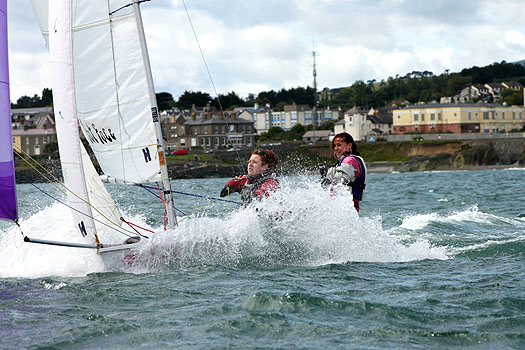
An RS200 at full speed off Greystones. Photo: Fiachra Etchingham
A maintenance free hull, made of lightweight polyester GRP ensures a long competitive life and second hand boats can be in very good condition so that older hulls are without the disadvantage experienced in fleets such as the 420. Furthermore, every hull comes from the same manufacturer giving no subtle advantage to any one boat; therefore racing just comes down to the sailors' tactics, boat handling and general knowledge of sailing and racing.
While the RS200 is not an Olympic class, there are large UK and Irish fleets which are active and competitive. Johnathan Lewis, a UK Feva coach and RS200 sailor, strongly encourages Feva graduates to move into the RS200 as it is an easy transition and makes for fun and exciting sailing. RS200 fleets are strong in Irish clubs such as those in Northern Ireland including Ballyholme, Newcastle and Cushendall as well as Greystones Sailing Club in Co. Wicklow.
Greystones Sailing Club boasts probably the largest asymmetric dinghy fleet in Ireland with fifty five asymmetric dinghies, twenty one of those being RSFevas and the majority of the remainder being RS200s. Recognising the RS200 as the natural progression from the Feva, ages range from fifteen to fifty five across the RS200 and RS400 fleets in the Club, with most of these boats competing in national events in Ireland, and some in the UK and further afield.
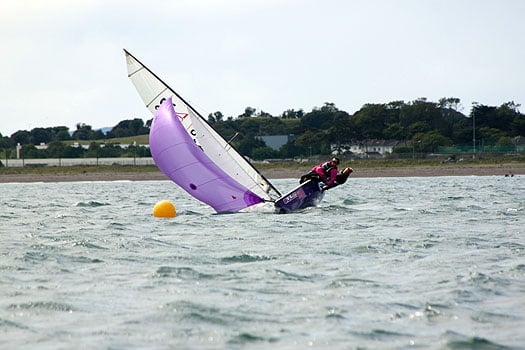
Rounding a mark in the RS200. Photo: Fiachra Etchingham
As fleets build in Dún Laoghaire and Howth yacht clubs, the RS200 is gradually becoming a popular progression from the Feva, and with the RS400 as a follow on boat for larger crews, young sailors can remain involved and spirited in asymmetric racing. The RS200 satisfies a thirst for speed and pace which generates more exciting, competitive and enjoyable sailing for those emerging from Feva fleet.
A Dublin Sailor (who has asked not to be named) has sent us comments on this story:
As one involved in junior and youth sailing at club level, one of the big decisions that faces youths is where to go after junior classes such as Optimists, Toppers, Fevas. Like any other sport, there is a high attrition rate after the age of 14 / 15, especially among girls which is an even greater shame as they can compete on a par with the guys.We need a class that will keep youths engaged. The 420 & 29er are great boats but require higher levels of boathandling, are much more competitive and tend to attract the top sailors. They also suffer from an inability to match up crews who will stick together - teenagers chop and change all the time and its difficult to race a boat like a 420 / Fireball / 29er wihout a constant crew partnership.
We need a boat/class that:
- Enables swapping around of crews without a major impact on the boathandling / teamwork. A sailor's plans for the weekend / event / season are not scuppered because of crewing issues.
- Does not need a highly competent crew (e.g. ability to trapeze and fly / gybe a kite etc.) so that sailors can sail with their mates who may not necessarily be top-notch sailors but who can acquit themselves well in a slightly less complex boat.
- Has a good mixed social scene which is the most important element of any class, youth or otherwise.
- Does not cost the earth in terms of purchase price, is easy on wear & tear on kit (hence replacement & upgrade costs) or does not go soft and become uncompetitive needing a new hull after three to five years etc
- Has international competition that is closeby (UK, FR, Bel, Ned etc) for those aspiring to a bit more
- Has a motiviated class structure to help grow the class.
The fear is that we are starting out another class that will dilute the current youth class efforts. However I believe that the 420 and 29er will hold their own and continue to attract top sailors with ISAF ambitions.
On the other hand, if we continue to support these we will continue to lose the middle ground (and majority) of young sailors from our sport. Youths are fickle enough and if its too much hassle to deal with all the challenges of getting afloat they just won't bother - sad but true.
The ISA needs to take a lead in this and while its Olympic ambitions are great to see, it will fail the sport as a whole if it does not tackle this gaping need in its portfolio of support.
I believe that the RS200 and R2400 provide the best solution to these challenges. They appear well-built and the manufacturer certainly appears well organised and gets involved.
Looking from outside and without any vested interests (other than the health of junior and youth sailing) the RS's get my vote as a class that can make a radical difference.



























